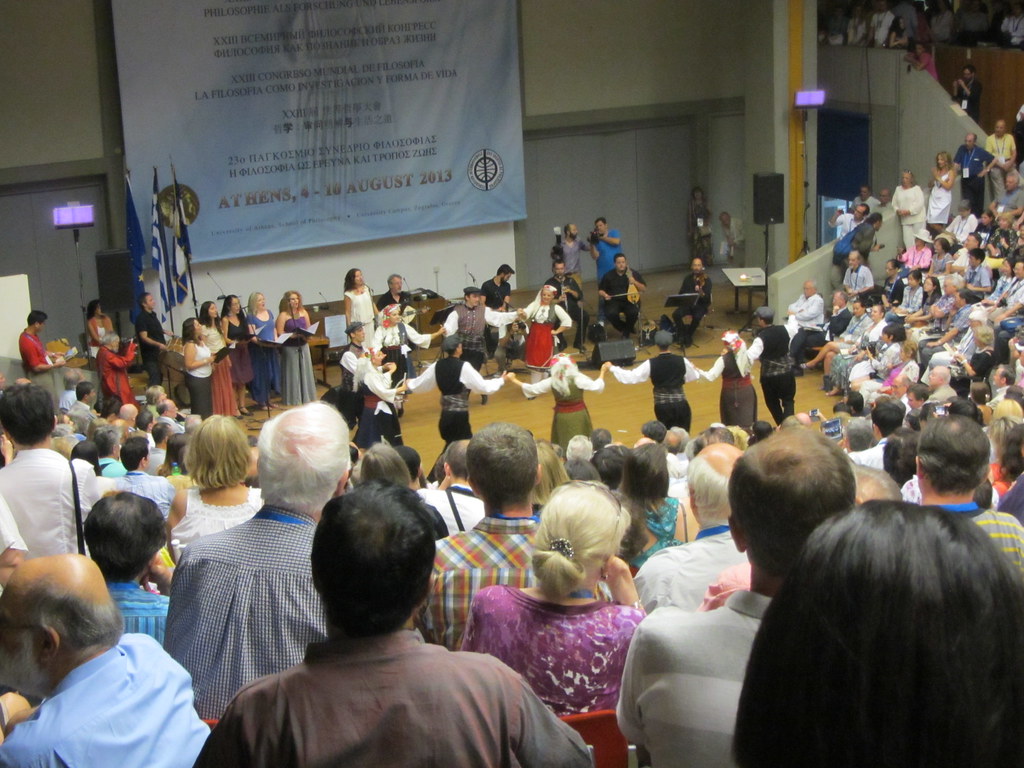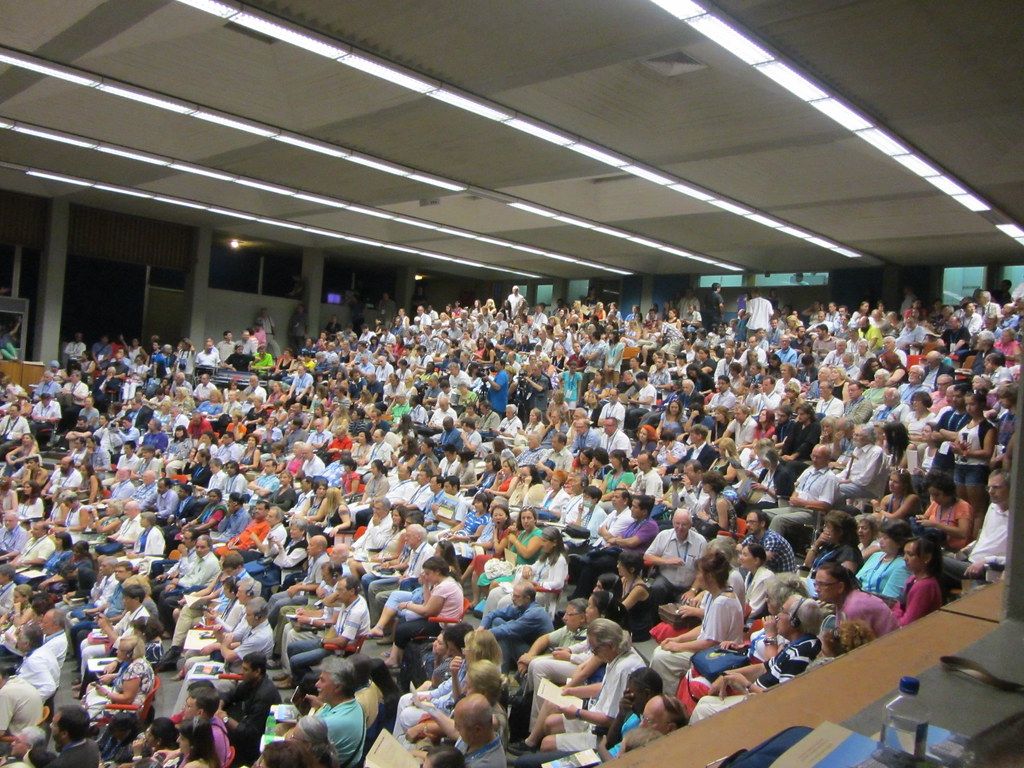Presence of Jain Philosophy at the XXIII World Congress of Philosophy, Aug 4-10, 2013, Athens, Greece
Venue: National and Kapodistrian University of Athens, School of Philosophy University Campus, Zografos, Athens, Greece
The cultural history and geographical location of Athens served as an ideal host for stimulating encounters between scholars from across the world. The main theme of the 2013 Congress was “Philosophy as Inquiry and Way of Life”. The World Congress of Philosophy is the biggest conference in the field of philosophy and held once in every five years. Thousands of scholars, societies, institutions and universities working in the field of philosophy participated in the 23rd World Congress of Philosophy.
The Jain presence was felt due to the efforts from Jain Vishva Bharati Institute, Ladnun, India, in collaboration with Florida International University, USA and Jain Education Research Foundation, USA. They held an invited session on “Jain Philosophy of Anekānta: A Panacea to the Problems of the Present Day World” and a Round Table on “Jain View towards Philosophical Inquiry and Harmonious Ways of Living” and other presentations starting from 5th, 6th, 8th, and 9th August, 2013. The conference comprised of Plenary Sessions, Invited Sessions, Endowed Lectures, Round Table, Contributed Papers, Symposium, Student Papers, and Poster Sessions. Representatives included scholars, academicians, students and other participants from almost every part of the globe; though Chinese and Indian participants were seen in good numbers.
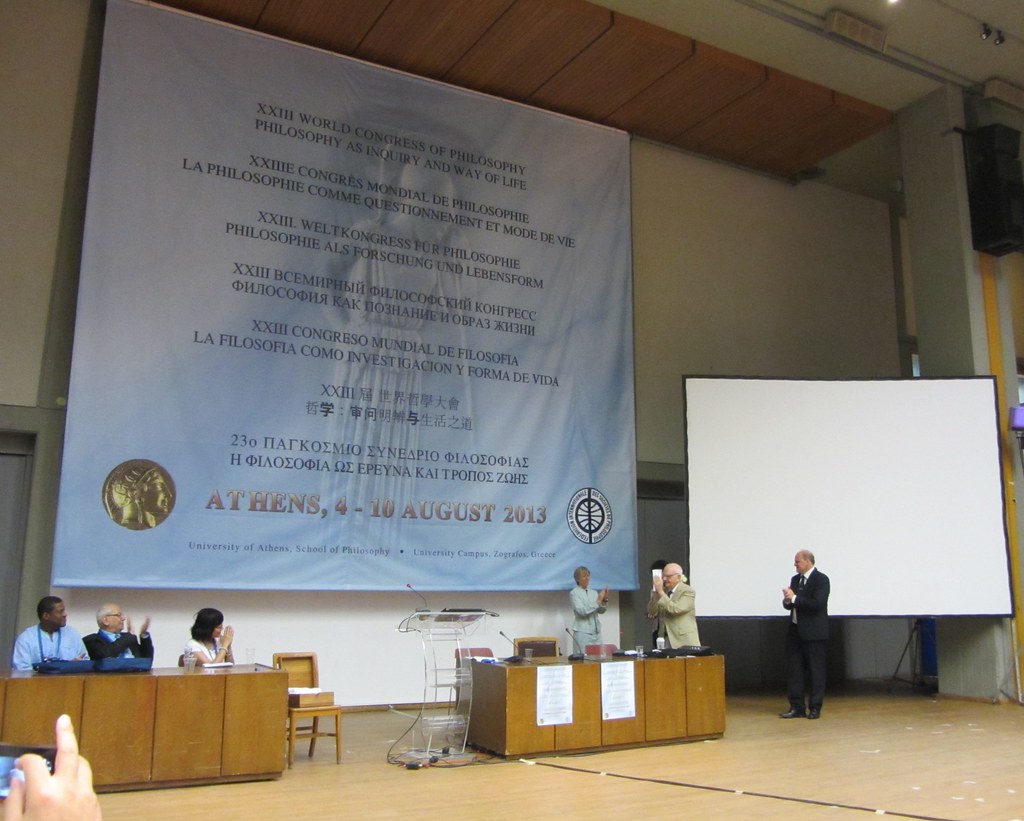 www.herenow4u.net/index.php?id=95807
www.herenow4u.net/index.php?id=95807
The official opening ceremony was on Aug 4th i.e., the first day of the World Congress. The program started with a welcome speech by the President and was followed by a musical evening - Symphony.
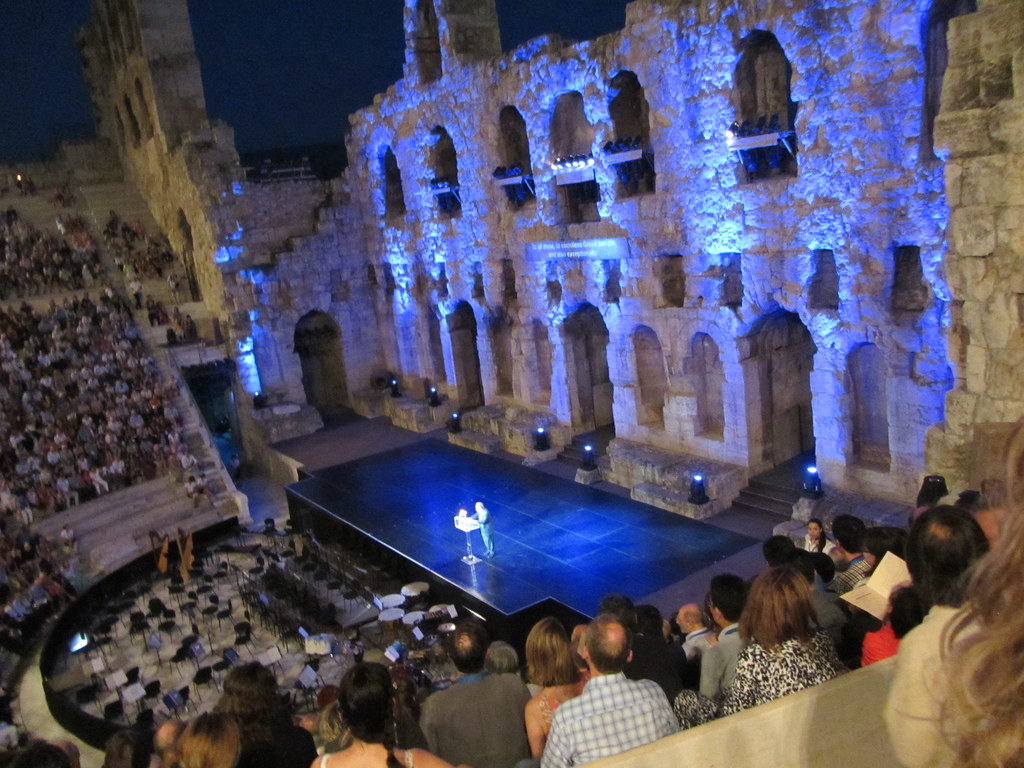 www.herenow4u.net/index.php?id=95807
www.herenow4u.net/index.php?id=95807
 www.herenow4u.net/index.php?id=95807
www.herenow4u.net/index.php?id=95807
Jainism is known in the Western world for its trilogy of Ahimsa (nonviolence), Aparigraha (nonposession) and Anekanta (nonabsolutism). Both Ahimsa and Aparigraha are common to pan-Indic traditions, however Anekānta is unique to the Jain philosophy. Anekānta is the theory that truth and reality are perceived differently from diverse points of view, and that no single point of view is the complete truth. In light of this remarkable, noteworthy Jain’s contribution to the world philosophies, Prof. Samani Chaitanya Pragya took the initiative to present the theory of Anekānta through multi-disciplinary lenses at the World Congress. She worked at length in organizing and making two remarkable sessions possible. According to Prof. Samani Chaitanya Pragya, “Deliberation on its key concepts, fundamental ideas and seminal practices will help in appreciating the significance of contribution of Jain philosophy to global issues affecting humanity.” Besides these two sessions, other contributions within Jain philosophy were by Dr. Nirmal Baid from USA in Contributed Papers and Shivani Bothra in Student Session. Dr. Nirmal Baid made the first presentation on Aug 5, 2013 and his topic was - Jain acceptance of life in nonhuman entities as a basis for environmental ethics.
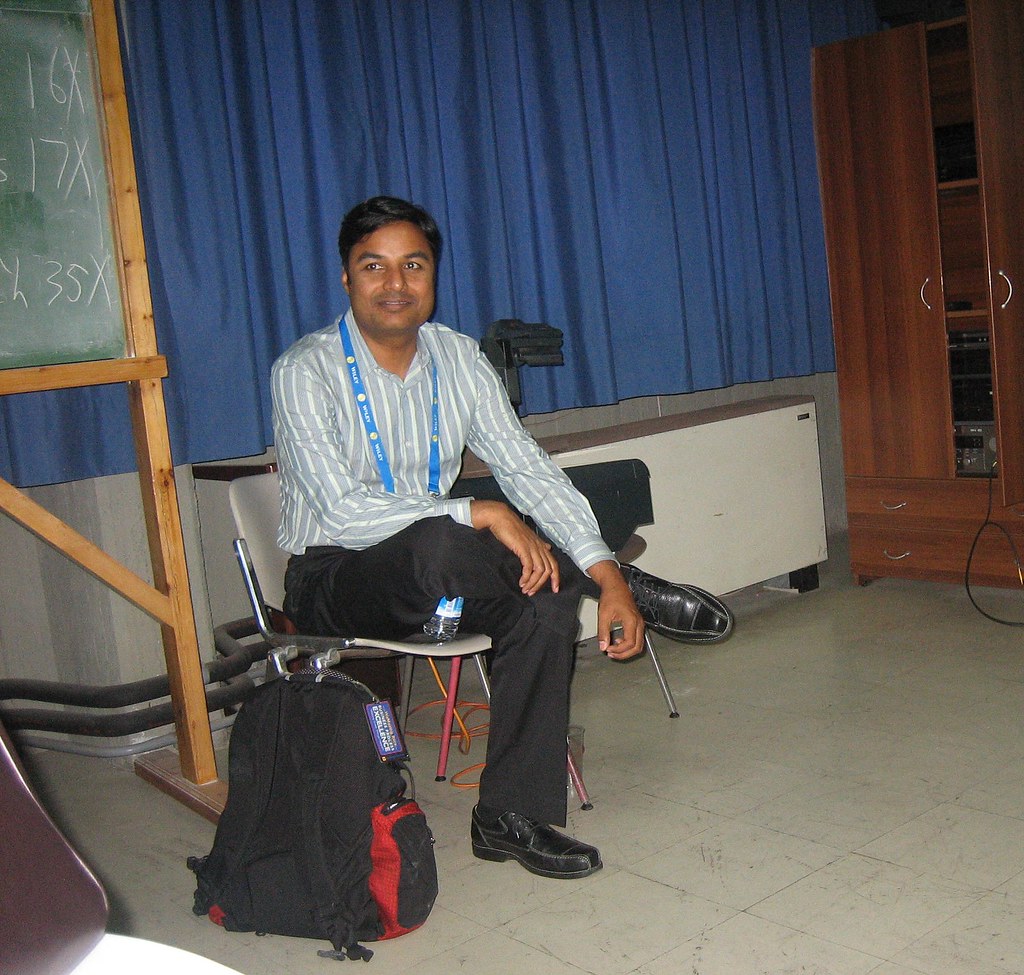 www.herenow4u.net/index.php?id=95807
www.herenow4u.net/index.php?id=95807
August 6, 2013 The Invited Session
The Jain presence was felt strongly due to multiple participations and the individual presence of two Samanis—Prof. Chaitanya Pragya and Asst. Prof. Rohit Pragya. It was a matter of great honour for JVBI that invited session was proposed and sponsored by Prof. William Mc Bride, President of International Federation of Philosophical Societies (FISP). Theme of the Invited Session was Jain Philosophy of Anekānta: A Panacea of the Problems of Present Day World. The chief guest of the session was Prof. William Mc Bride. Prof. Dipak Jain, former Dean, INSEAD Business School for the World, France chaired the session.
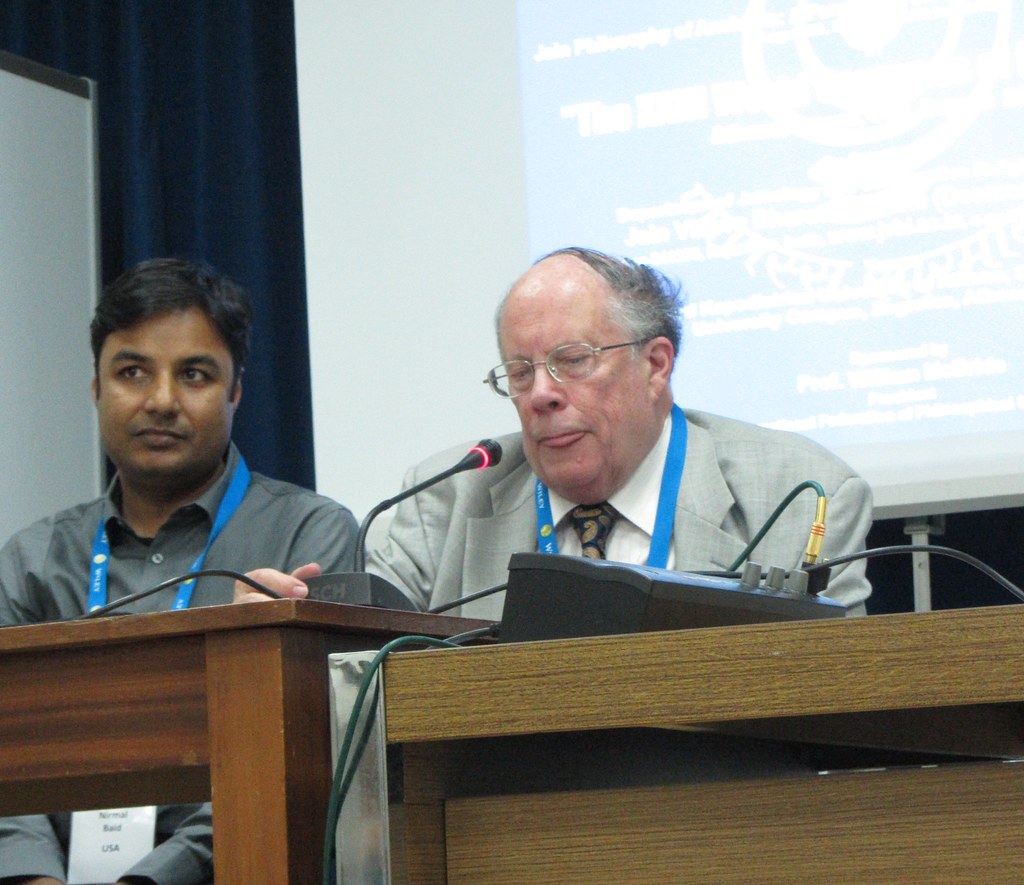 www.herenow4u.net/index.php?id=95807
www.herenow4u.net/index.php?id=95807
Prof. Dipak Jain introduced the theme of the session, along with a detailed description of Prof. Samani Chaitanya Pragya’s contributions to Jain Vishva Bharati Institute in Ladnun, India and Florida International University, USA. He also had the privilege to briefly introduce the scholars participating in the Invited Session.
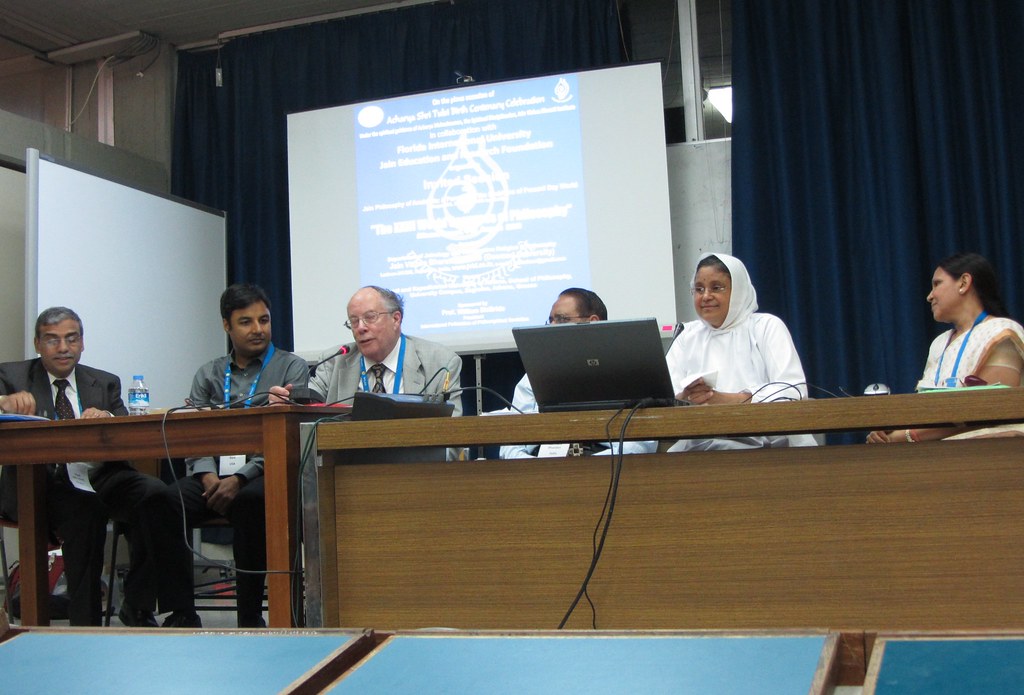 www.herenow4u.net/index.php?id=95807
www.herenow4u.net/index.php?id=95807
The first speaker for the Invited Session was Prof. Narendra Bhandari, Space Scientist, Indian National Science Academy, India, and his topic was—Scientific Foundation of Anekānta: The Philosophy of Multifacetedness of Nature. Prof. Bhandari delivered his talk by introducing Anekānta as a scientific theory and said that the principle of co-existence comes very close to the scientific principle of complementarity from the perspective of material science. He began by posing the question: “Is Anekānta only a philosophic proposition and has been developed to accommodate religious pluralism and their coexistence and to avoid cultural, social, family, and personal conflicts, or is there any kernel of truth in it? Does it have a scientific basis?”
The second speaker of the session was Prof. Kusum Jain, Dean of Arts, University of Rajasthan. She presented on Anekānta: A Befitting Response to Religious Fundamentalism. She stated, “Religious fundamentalism as one of the biggest causes of misery and restlessness and Anekānta is the best way to come out from this problem because it teaches to accept the truth underlying different religious traditions.” By analyzing various aspects and notions of Nayas and multi-valued logic, her paper proposed to explore the possibility of preparing groundwork for a religious framework which can provide a befitting response to ills & threats of religious fundamentalism and pave the way to build a more harmonious, more tolerant, respectful, non- dogmatic non-extremist, pluralistic, cooperative and peaceful human society.
Next in the series, was the paper on Anekant as a Metaphysical Foundation of Religious Pluralism written by Prof. Jaffery D. Long, Elizabethtown College, USA and was read by Dr Nirmal Baid, USA. In the view of Dr. Long, the principle of religious pluralism is an important intellectual tool in developing a sustainable worldview that can accommodate difference and cultivate mutual respect among humanity’s many systems of belief and practice. Furthermore, he noted “Anekāntavāda, if argued, successfully steers a course between the extremes of absolutism and relativism to which conversations about religious pluralism are prone.”
Final presentation of the session was done by Prof. Samani Chaitanya Pragya on Anekānta: A Philosophy of Non-absolutism and Peaceful Co-existence. She examined how Anekānta can be a new paradigm of philosophy of co-existence. She further stated, “Philosophers, political thinkers and scientists are seized with a gargantuan challenge to make the world order free from cultural conflicts. Perhaps, the most intimidating threat to realize a grandiose peace project stems fundamentally from the in-built prejudices, rigid doctrinaire and stereotyped approaches of religious and political leaders who are not prepared to alter their age-old belief-systems, images and perceptions of cultural constructs.” The Invited Session concluded with the question and answer session from the audience, which ultimately led to a stimulating discussion between the audience and the speakers in further clarifying the theoretical and practical aspect of Anekanta.
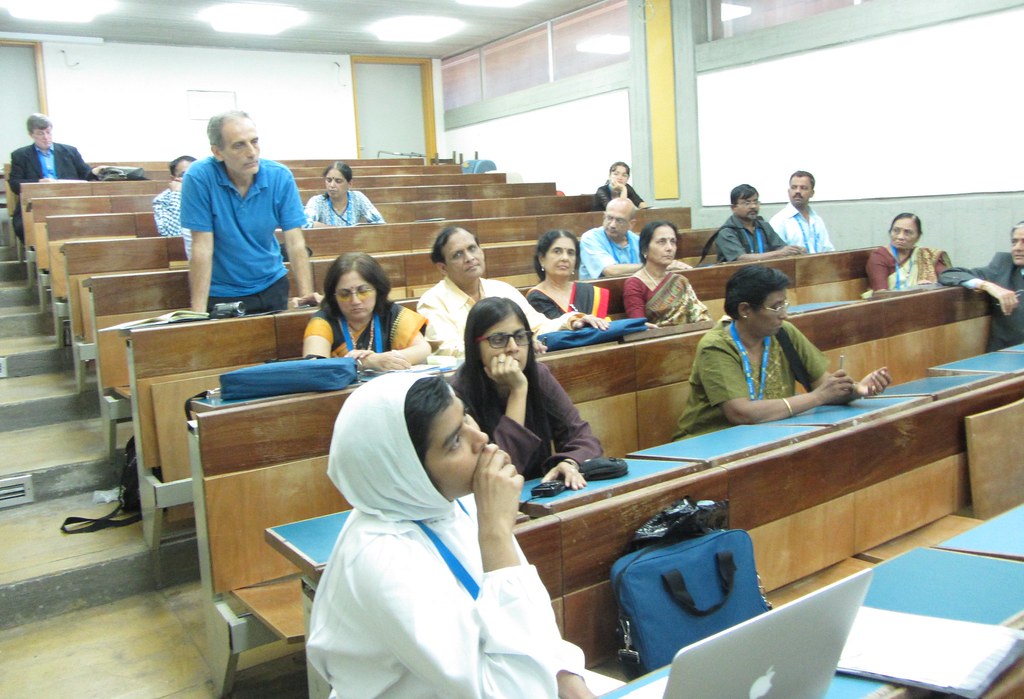 www.herenow4u.net/index.php?id=95807
www.herenow4u.net/index.php?id=95807
The Round Table, organized by Prof. Samani Chaitanya Pragya was conducted on August 8. Theme of the Round Table was Jain View towards Philosophical Inquiry and Harmonious Ways of Living.
While giving a brief background about the theme of the Round Table, Prof. Chaitanya Pragya introduced the speakers of the session and invited Prof. Narendra Bhandari to deliver his talk on Jain Approach to Living in Harmony.
 www.herenow4u.net/index.php?id=95807
www.herenow4u.net/index.php?id=95807
Prof. Bhandari highlighted the fact of nature and said “Whether we accept or not, harmony between living and non-living exist in the world. By disturbing one particle, we disturb the whole world because everything is integrally connected with each other in this world. He also stated that one can disturb the harmony existing in natural world but cannot stop or remove it completely.”
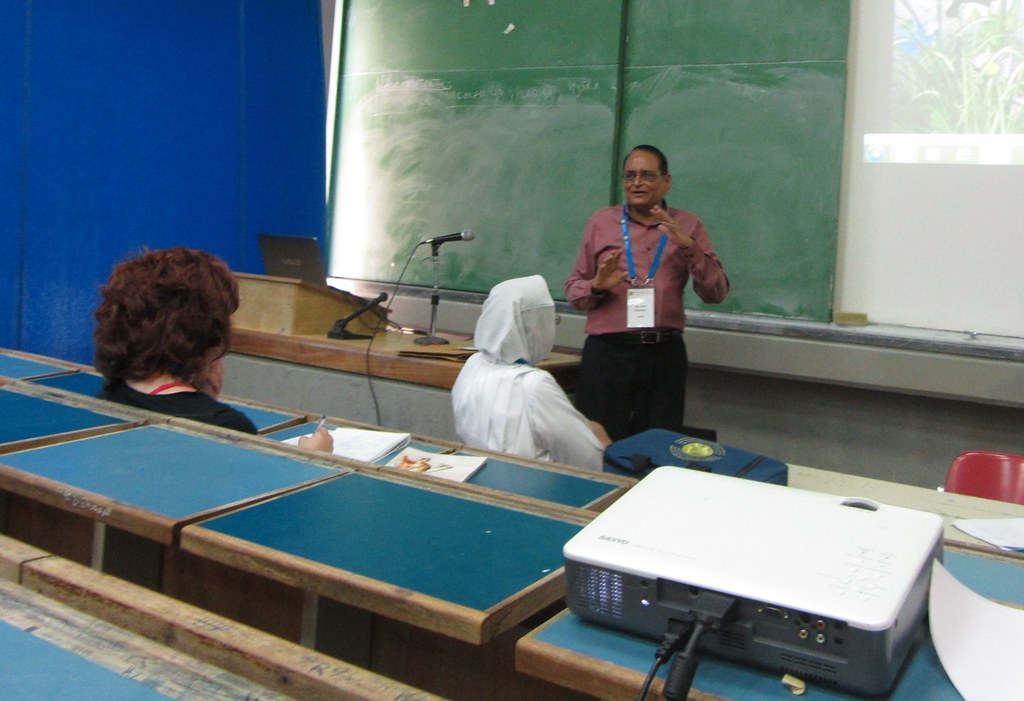 www.herenow4u.net/index.php?id=95807
www.herenow4u.net/index.php?id=95807
Following the talk on nature and Jain view, next was the stimulating talk by Prof. Kusum Jain on Economics of Non-violence and Sustainable Development. She shared ideas on sustainable development while also speaking on the significance of self-restraint i.e. minimization of material desires as a way to sustainable development.
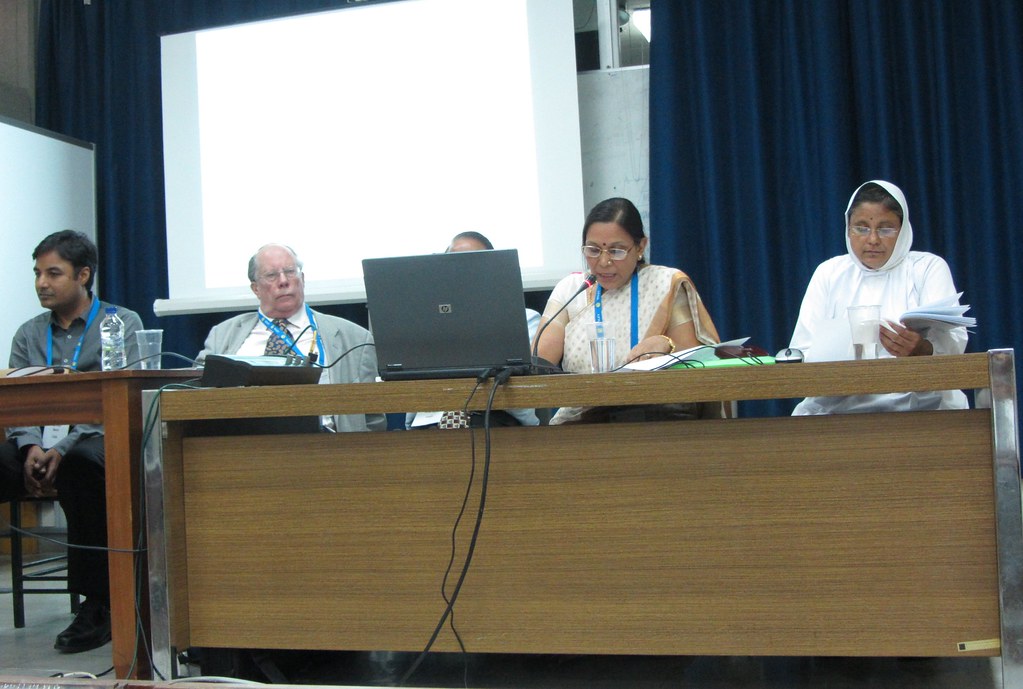 www.herenow4u.net/index.php?id=95807
www.herenow4u.net/index.php?id=95807
Next was Prof. Dipak Jain’s illuminating presentation on Jain Principles and Values: A Moral Compass. Along with his topic, he also summarised all the views of speakers and threw light on having moral and ethical life by accepting the principle of nonviolence, non-possessiveness and non-absolutism. He motivated to move ahead from success to significance of life.
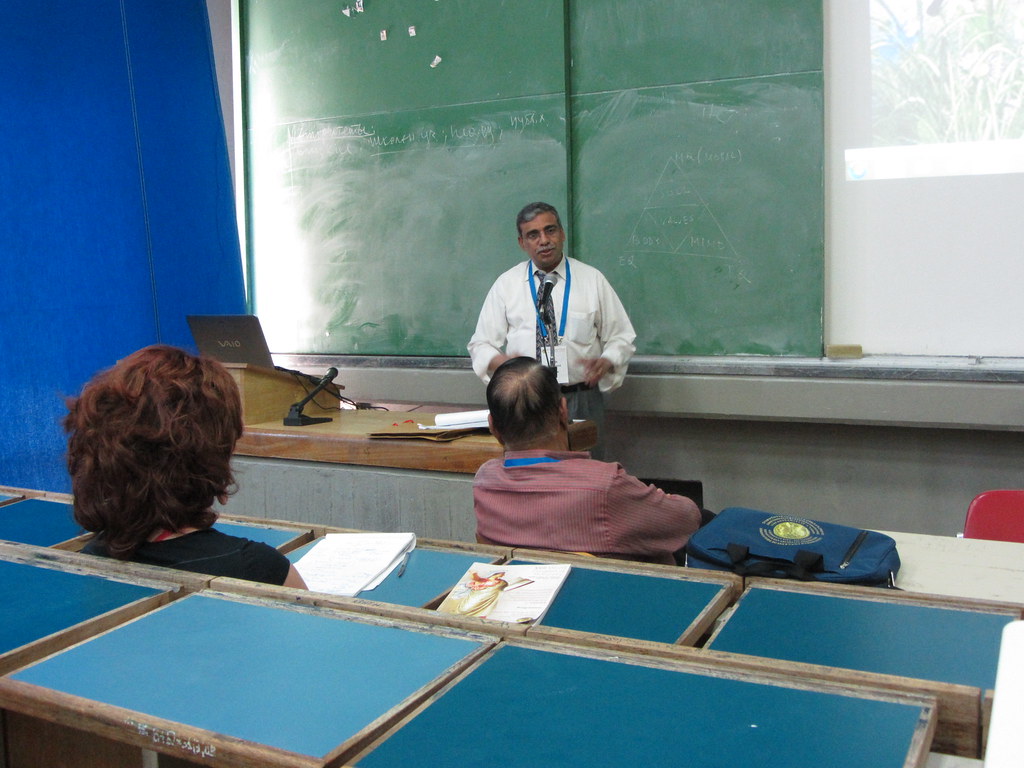 www.herenow4u.net/index.php?id=95807
www.herenow4u.net/index.php?id=95807
Asst. Prof. Samani Rohit Pragya, in her brief talk emphasized that “one who accepts the principle of co-existence, understands the principle of relativity and apply the principle of reconciliation can develop the self spiritually as well as enjoy the peace in pragmatic life.” Towards the end of each session, continued long interactions and discussions over the High tea organized by Jain Vishva Bharati Institute.
At the end of Round-Table, Prof. Dipak Jain read a document of Declaration on Jain View of Philosophical Inquiry and Harmonious Ways of Living signed by all the speakers, and presented to Prof. William McBride, the President of FISP.
 www.herenow4u.net/index.php?id=95807
www.herenow4u.net/index.php?id=95807
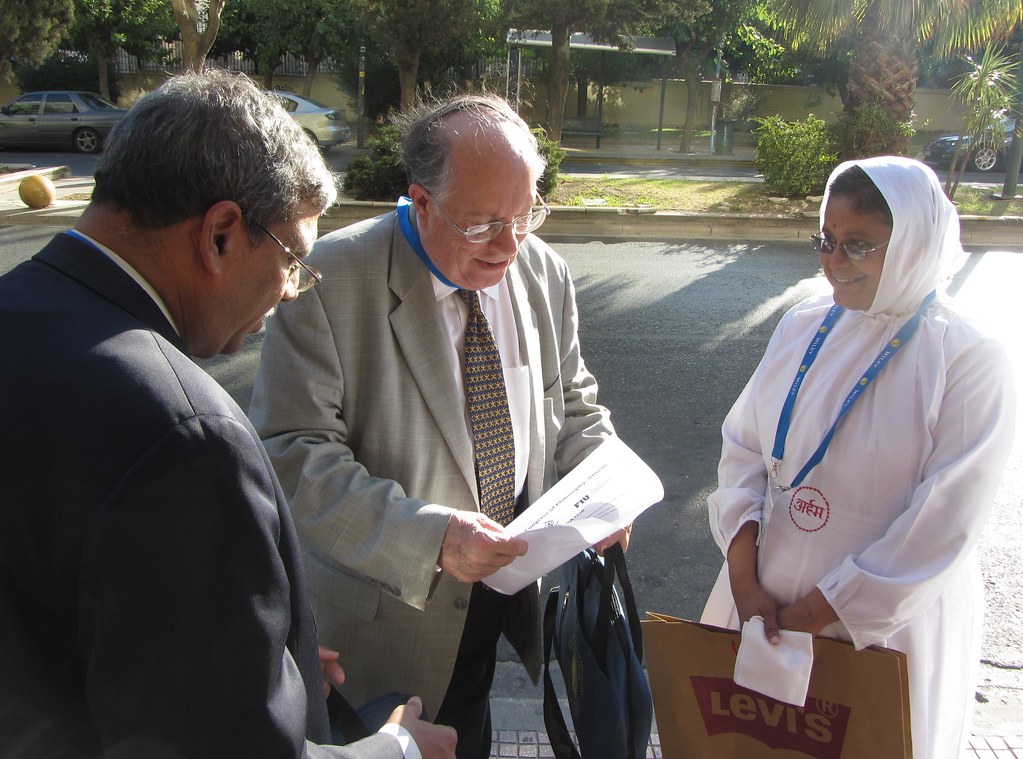 www.herenow4u.net/index.php?id=95807
www.herenow4u.net/index.php?id=95807
The last of the Jain presence in the World Congress of Philosophy was a talk delivered by Shivani Bothra in the Student Session. Her topic was the Anuvrat Movement: Social Implication of a Philosophical Action. The slogan: “Self-restraint is life,” forms the philosophical ideal behind the Anuvrat Movement, introduced by Acharya Tulsi in 1949 as a non-sectarian spiritual movement. The purpose of her paper was to examine and analyze the effectiveness of the modified Anuvrat vows, which formed the core of the Anuvrat Movement.
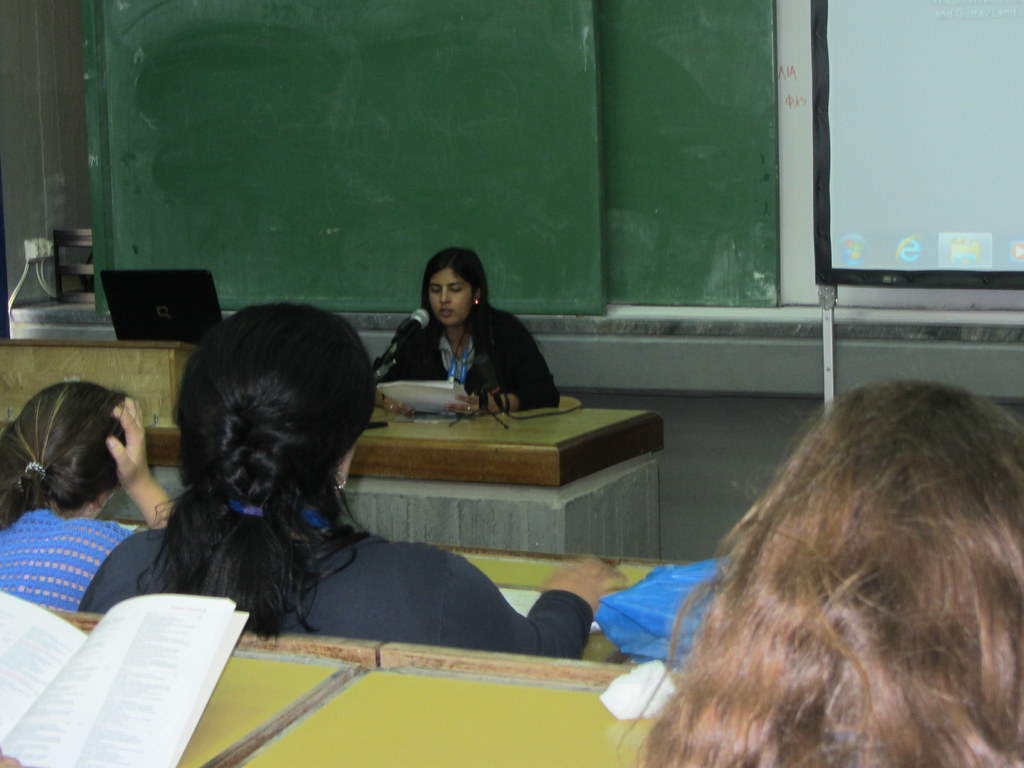 www.herenow4u.net/index.php?id=95807
www.herenow4u.net/index.php?id=95807
The Student Session was different as compared to the rest of the sessions. The numbers of papers presented in one session were many. Therefore, there was no time left for any question or discussion.
It is difficult to comment on the accomplishments of the above-mentioned sessions as Jainism is still a fresh area of inquiry in the Western world. However, the endeavor undertaken by the Jain Vishva Bharati Institute, India in collaboration with Florida International University, USA and Jain Education and Research Foundation, USA in expounding the philosophy of Anekanta, was a unique effort within Jain scholarship in brining together scholars and thinkers from varied disciplines.
August 10, 2013, was the last day of the World Congress. Like the grand opening ceremony, the conference ended with a wonderful evening of cultural dances, music, songs and gala dinner organized by World Congress of Philosophy.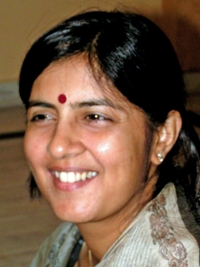 Shivani Bothra
Shivani Bothra

